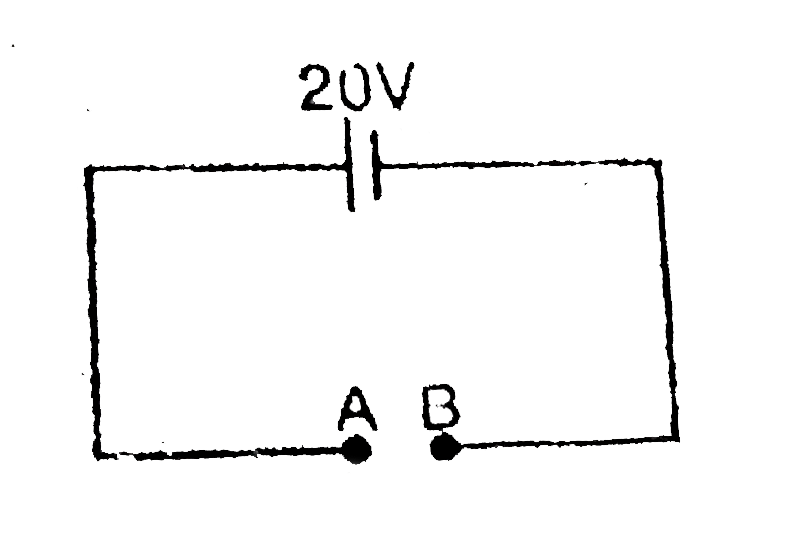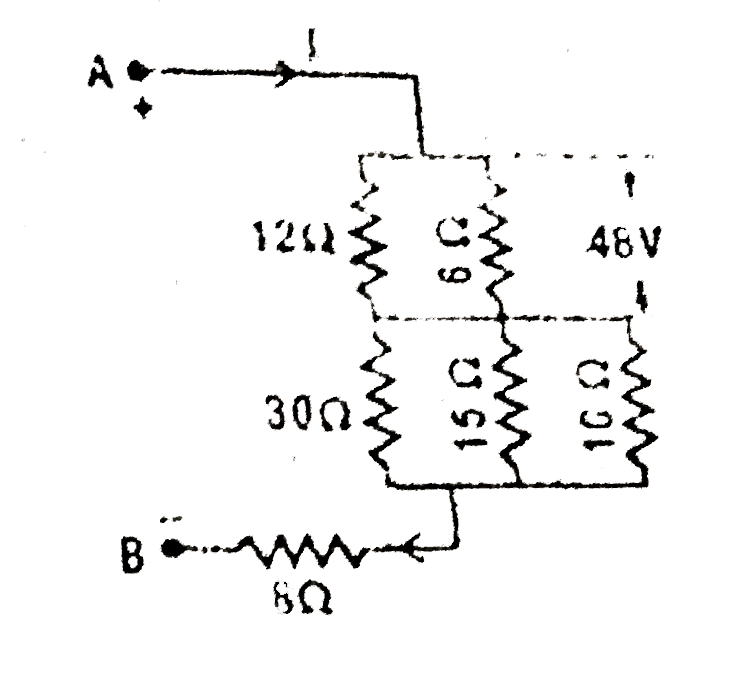A wall is made of equally thick layers A and B of different matierals. Thermal conduvtivity of A is twice that of B. In the stedy state, the temperature difference across the wall is 36∘C . The temperature difference across the layer A is
6∘C
12∘C
18∘C
24∘C
The correct Answer is:B
Thermal resistance,
R=lKA∝1K⇒KA=2KB
∴RA=RB2
So, let RA=RthenRB=2R
Now, HA=HB
∴(TD)ARA=(TD)BRBor(TD)A=(RARB)(TD)B
=(R2R)(36∘C)=18∘C .
Topper's Solved these Questions
- CALORIMETRY & HEAT TRANSFERBOOK - DC PANDEY ENGLISHCHAPTER - CALORIMETRY & HEAT TRANSFEREXERCISE - Level 1 Subjective
13 Videos
- CALORIMETRY & HEAT TRANSFERBOOK - DC PANDEY ENGLISHCHAPTER - CALORIMETRY & HEAT TRANSFEREXERCISE - Level 2 Single Correct
7 Videos
- CALORIMETRY & HEAT TRANSFERBOOK - DC PANDEY ENGLISHCHAPTER - CALORIMETRY & HEAT TRANSFEREXERCISE - Assertion And Reason
10 Videos
- BASIC MATHEMATICSBOOK - DC PANDEY ENGLISHCHAPTER - BASIC MATHEMATICSEXERCISE - Exercise
13 Videos
- CALORIMETRY AND HEAT TRANSFERBOOK - DC PANDEY ENGLISHCHAPTER - CALORIMETRY AND HEAT TRANSFEREXERCISE - Medical entrance s gallery
38 Videos
Similar Questions
A wall has two layers A and B, each made of different material. Both the layers have the same thickness. The thermal conductivity of the material of A is twice that of B . Under thermal equilibrium, the temperature difference across the wall is 36∘C. The temperature difference across the layer A is
View SolutionA wall has two layers X and Y each made of different materials. Both layers have same thickness. Thermal conductivity of X is twice that of Y. At steady state the temperature difference of opposite faces of wall is 54°C. The temperature difference across Y layer is
View Solution
Knowledge Check
A wall has two layers A and B, each made of different materials. Both the layers have the same thickness. The thermal conductivity of the material of A is twice that of B. Under thermal equilibrium , the temperature differeence across the wall is 36∘C. The temperature difference across the layer A is
A6∘CB12∘CC18∘CD24∘CA wall has two layers A and B, each made of different material. Both the layers have the same thickness. The thermal conductivity of the material of A is twice that of B . Under thermal equilibrium, the temperature difference across the wall is 36∘C. The temperature difference across the layer A is
A12.∘CB18.∘CC6.∘CD24.∘C
A wall has two layers A and B each made of different materials. The layer A is 10cm thick and B is 20 cm thick. The thermal conductivity of A is thrice that of B. Under thermal equilibrium temperature difference across the wall is 35∘C. The difference of temperature across the layer A is
View SolutionA partition wall has two layers of different materials A and B in contact with each other. They have the same thickness but the thermal conductivity of layer A is twice that of layer B. At steady state the temperature difference across the layer B is 50 K, then the corresponding difference across the layer A is
View SolutionA wall has two layers A and B made of two different materials thermal conductivities KA and KB (KA=3KB). The thickness of both the layers is same. The temperature across the wall is 20∘C in thermal equilibrium. Then
View SolutionIn the shown circuit, what is the potential difference across A and B

View SolutionIn the figure the potential difference across 6 ohm resistor is 48 V. Then the potential difference between A and B is

View SolutionTwo slabs A and B of different materials but of the same thicknesss are joined end to end to form a composite slab. The thermal conductivities of A and B are K1 and K2 respectively. A steady temperature difference of 12∘C is maintained across the composite slab. If K1=K22, the temperature difference across slabs A is
View Solution
